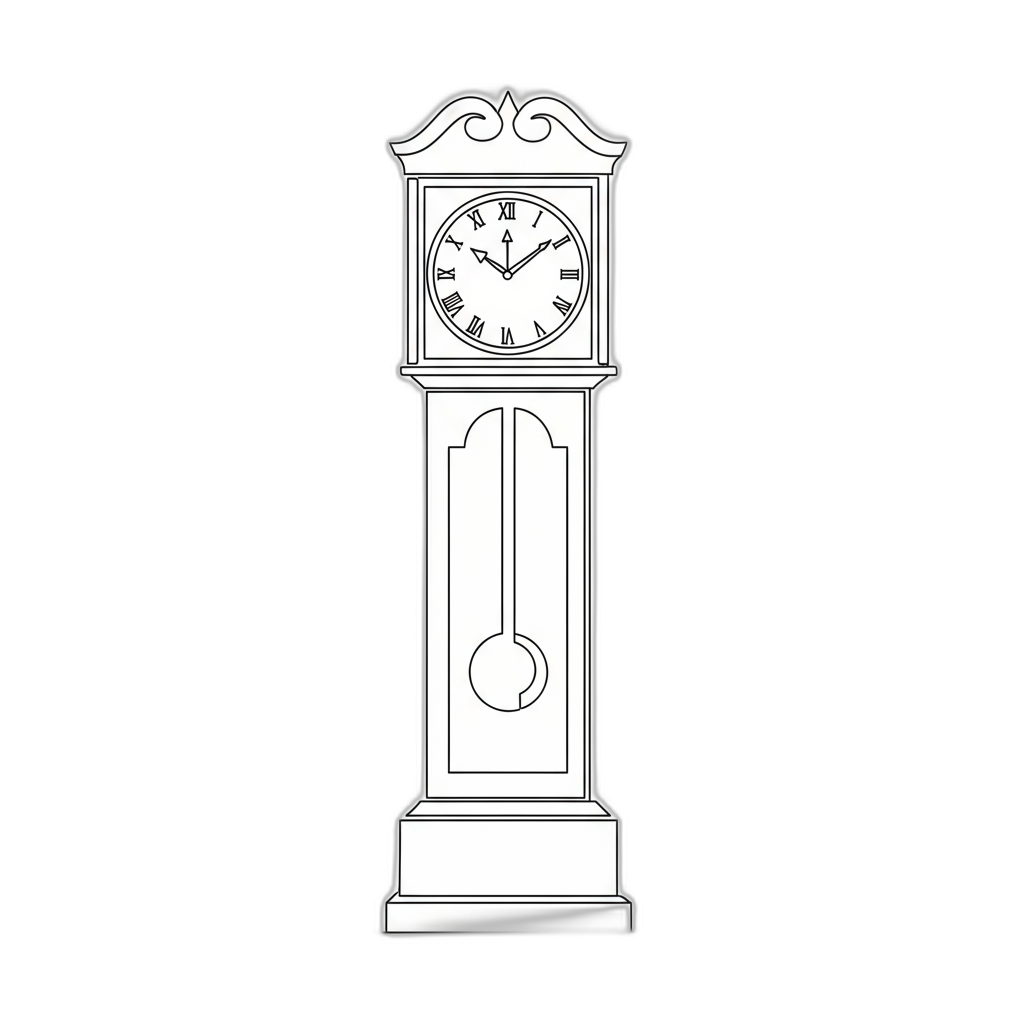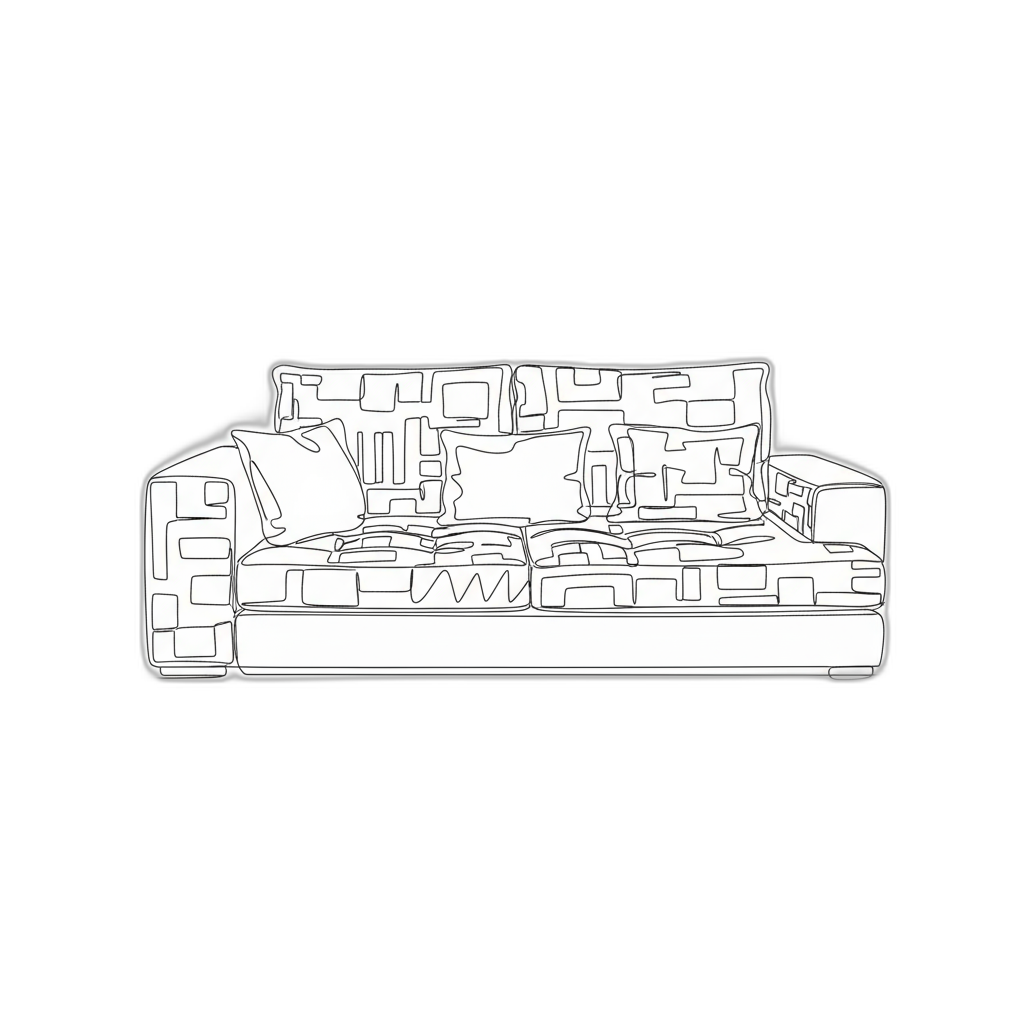






5-Star Valuation Services, Loved by Hundreds
Your Appraiser Search Ends Here
AppraiseItNow offers defensible personal property appraisals for any legal or tax need.


Easy & Fast Online Appraisal Process
Our unique model allows us to meet super tight deadlines for tax filings, court dates, internal company project timelines.

Industry-Leading Appraisal Speed
Our unique business model means that we always have a credentialed appraiser available to work on your project, and we can meet obscure and short deadlines for tax filings, court submissions, internal projects, and more. Even if that means preparing your appraisal within 24 hours!

Any Asset Covered
This means that we can appraise any type of item including furniture, artwork, jewelry, business inventory, machinery & equipment, cars, boats, and more!

Servicing Enterprises & Individuals
Our company services anyone from an individual with a single couch to an enterprise needing contents of multiple offices or warehouses appraised.

Defensible for Any Purpose
Frequently Asked
Questions
No Frequently Asked Questions Found.
The determination of FMV is a complex process influenced by multiple interconnected factors. Market conditions play a critical role, with economic climate, local trends, and buyer demand dynamically shaping property valuations. Professional appraisers employ sophisticated methodologies to assess value, including comparative market analysis, cost-based approaches, and income potential evaluations.
Key elements that impact Fair Market Value include property location, physical condition, architectural features, and broader economic indicators. A property's neighborhood, proximity to amenities, structural integrity, and current market dynamics all contribute to its perceived value. Importantly, FMV differs significantly from distressed sale prices, which can artificially deflate a property's true market potential.
Legal and financial contexts frequently rely on accurate FMV assessments. From estate planning and divorce settlements to tax calculations and insurance purposes, a precise valuation ensures equitable transactions and compliance with regulatory requirements. The underlying principle remains consistent: determining the most realistic price a property would command under normal market circumstances.
Understanding Fair Market Value empowers individuals and professionals to make informed decisions, ensuring transparency and fairness in property-related transactions. By comprehending the nuanced factors that influence valuation, stakeholders can navigate real estate markets with greater confidence and strategic insight.
Accurate valuation serves multiple essential purposes across different domains. When engaging in asset transactions, an FMV appraisal ensures that buyers and sellers have a clear understanding of the asset's true market value, preventing potential pricing discrepancies and facilitating smoother exchanges.
Legal proceedings frequently rely on FMV appraisals to make equitable determinations. In contexts such as divorce settlements, estate planning, and probate cases, these valuations provide an objective basis for asset division and resolution of complex financial matters.
Tax reporting demands precise asset valuation. An FMV appraisal becomes crucial documentation for accurately reporting asset values, calculating potential tax liabilities, and ensuring compliance with regulatory requirements. This is particularly important for capital gains assessments and inheritance reporting.
Insurance and risk management also benefit significantly from comprehensive FMV assessments. By establishing an asset's true value, individuals and organizations can secure appropriate coverage, protecting against potential financial losses and ensuring adequate risk mitigation.
Financial planning and investment strategies rely heavily on accurate valuation. FMV appraisals offer critical insights into asset performance, potential returns, and strategic decision-making, enabling more informed and confident financial choices.
Charitable donations represent another domain where FMV appraisals play a pivotal role. These valuations provide the necessary documentation for tax deduction purposes, substantiating the claimed value of donated assets.
Dispute resolution often hinges on an objective, unbiased assessment of asset value. An FMV appraisal can serve as a neutral arbiter in conflicts between business partners, property co-owners, or parties involved in legal proceedings.
Ultimately, a Fair Market Value appraisal transcends simple number-crunching. It represents a comprehensive tool that provides transparency, clarity, and confidence across a wide spectrum of financial and legal interactions, protecting the interests of all parties involved.
Professional appraisers conduct an in-depth examination considering key factors such as age, condition, craftsmanship, materials, and historical significance. They carefully assess the furniture's physical characteristics, including the quality of construction, original materials, and overall preservation state. Specific design elements like wood type, joinery techniques, surface finishes, and manufacturing methods play crucial roles in determining value.
The appraisal process extends beyond visual inspection, incorporating extensive research into comparable market sales, auction records, and current collector trends. Appraisers analyze historical context, examining how specific design periods, manufacturers, and artistic movements impact a piece's desirability and potential financial value. Unique provenance, rare design elements, and original condition can dramatically influence an item's overall appraisal.
Expertise in furniture history, materials science, and market dynamics allows appraisers to provide nuanced, accurate valuations that reflect both the item's intrinsic qualities and its current market positioning. This comprehensive approach ensures a thorough and precise assessment that goes well beyond simple visual estimation.
The online appraisal process is designed to be both flexible and comprehensive. Clients are usually required to provide extensive information about their furniture, including precise dimensions, manufacturing details, current condition, age, and any distinctive characteristics that might influence its value. High-quality, multiple-angle photographs are crucial for enabling appraisers to make accurate assessments.
Advanced technological platforms now support various interactive appraisal methods. Live video consultations through platforms like Zoom or Skype enable real-time communication, allowing appraisers to request additional visual information or ask specific questions about the item. This interactive approach helps bridge the gap between traditional in-person assessments and remote evaluations.
Remote appraisals offer significant advantages, particularly for individuals with scheduling constraints, mobility limitations, or geographical challenges. Clients can undergo professional furniture valuations from the comfort of their home, eliminating the need for complicated logistical arrangements or transportation of potentially fragile items.
While online appraisals provide remarkable convenience, clients should understand that the accuracy of the assessment depends heavily on the quality and comprehensiveness of the information submitted. Clear, well-lit photographs and detailed, honest descriptions are essential for obtaining a reliable valuation.
The digital appraisal landscape continues to evolve, with professionals leveraging sophisticated technologies to deliver precise and trustworthy evaluations. For those seeking a convenient, efficient approach to understanding their furniture's value, online appraisals represent a modern solution to traditional valuation challenges.
Antique furniture appraisers represent a critical subset of this profession, focusing on pieces with significant historical value. They possess deep knowledge of period-specific design elements, manufacturing techniques, and cultural influences. Their expertise allows them to authenticate and precisely value items over a century old, distinguishing genuine antiques from skillful reproductions.
Contemporary furniture appraisers specialize in more recent designs, tracking current market trends and understanding the nuanced value of modern pieces. These professionals are particularly adept at evaluating furniture from the past few decades, considering factors like designer reputation, manufacturing quality, and current aesthetic preferences.
Collectible furniture appraisers occupy a unique niche, concentrating on pieces that hold special significance within collector communities. They understand the complex ecosystem of collector markets, assessing value based on rarity, historical importance, and desirability among specialized enthusiasts.
Specialty furniture appraisers develop deep expertise in specific styles or categories, such as mid-century modern or artisan-crafted pieces. Their targeted knowledge allows for precise valuations that consider the subtle characteristics unique to particular design movements or crafting traditions.
Furniture restoration appraisers bring technical insight into how preservation and restoration impact an item's value. They evaluate the potential and limitations of restoring a piece, providing critical guidance on maintaining or enhancing its market worth through careful intervention.
Selecting the right appraiser requires careful consideration of the specific furniture in question and the purpose of the valuation, ensuring a comprehensive and accurate assessment.
Insurance documentation represents a primary driver for obtaining furniture appraisals. Comprehensive valuations ensure homeowners can secure appropriate coverage and expedite claims processes in the event of loss, theft, or damage. Precise documentation becomes instrumental in protecting significant investments and providing clear evidence of an item's worth to insurance providers.
Estate planning and legal proceedings also benefit substantially from professional furniture appraisals. When distributing assets among heirs, accurate valuations help create equitable divisions and minimize potential familial conflicts. These assessments provide transparent, objective information about furniture's market value, facilitating smoother inheritance transitions and legal settlements.
Charitable donations involving high-value furniture require professional appraisals to validate tax deduction claims. When furniture exceeds certain monetary thresholds, documented assessments become essential for substantiating donation values and maximizing potential tax benefits.
Divorce proceedings frequently rely on furniture appraisals to determine fair property division. Professional evaluations offer neutral, fact-based assessments that help reduce emotional tension and streamline settlement negotiations by providing clear, defensible property values.
Collectors and antique enthusiasts particularly benefit from professional appraisals, gaining insights that inform purchasing, selling, and maintaining valuable collections. Understanding precise market values empowers informed decision-making and prevents potential financial misjudgments.
Ultimately, furniture appraisals represent more than simple monetary assessments. They provide comprehensive insights that protect financial interests, facilitate legal processes, and offer peace of mind across numerous personal and professional contexts.
What is a Furniture Appraisal?
A furniture appraisal is an expert evaluation of the monetary value of a piece of furniture, typically conducted to determine its fair market value. This process involves a thorough examination of the item, taking into account various factors such as age, condition, craftsmanship, brand, and historical significance. Appraisers often utilize market research and industry databases to compare similar items and assess current trends, ensuring that their valuation is accurate and reflective of the current market conditions.
The fair market value established through a furniture appraisal represents the price that a willing buyer would pay to a willing seller under normal market conditions. This information is invaluable for a range of purposes, including estate planning, insurance claims, and sales transactions. A well-documented appraisal also serves as an important record for collectors and enthusiasts, providing insight into the provenance and worth of their cherished pieces.
Importance of Fair Market Value in Furniture Appraisals
Determining the fair market value of furniture is essential for various reasons, including sales, insurance, and estate planning. Fair market value represents the price at which the furniture would sell in an open market, where both buyer and seller are informed and willing to transact. This valuation helps owners understand the true worth of their possessions, ensuring they can make informed decisions when it comes to selling or insuring their items.
Beyond selling and insurance, fair market value plays a crucial role in settling estates and distributing assets among heirs. Accurate appraisals can prevent disputes by providing a clear, unbiased assessment of individual items. Furthermore, understanding fair market value can also assist in depreciation calculations, allowing owners to recognize the ongoing worth of their furniture over time, which is especially important for businesses that account for asset values in their financial statements.
Types of Furniture That Can Be Appraised
When it comes to furniture appraisals, a wide variety of items can be assessed to determine their fair market value. Antiques are often one of the most sought-after categories, as they typically hold historical significance and unique craftsmanship. However, more contemporary pieces, including designer furniture and custom-built items, can also have significant value, particularly if they are rare or in high demand. Each category has its specific characteristics and market nuances that an appraiser will consider during the evaluation process.
In addition to traditional furniture types such as chairs, tables, and cabinets, ancillary items like rugs, light fixtures, and decorative accessories can also be appraised. These elements contribute to a room's overall aesthetic and can be appraised based on their age, condition, and provenance. Moreover, outdoor furniture such as patio sets and garden ornaments may hold substantial value as well, especially if they are crafted from high-quality materials and designed by renowned manufacturers.
It is essential to note that the condition of furniture plays a critical role in its appraisal. Well-maintained items often fetch higher prices compared to those that show signs of wear and damage. Additionally, a piece’s authenticity—including original tags, receipts, and documentation—greatly impacts its market value. Understanding the diverse types of furniture that can be appraised helps sellers and buyers alike navigate the furniture market with greater confidence.
Factors Influencing Fair Market Value of Furniture
Determining the fair market value of furniture involves several key factors that can significantly affect its price. Condition is paramount; the better the condition, the more valuable the piece. Additionally, brand reputation plays a critical role, as well-known manufacturers often command higher prices due to their established quality and desirability. Age and rarity are also major influences, as vintage or limited-edition items can attract collectors looking for unique pieces.
Market trends and the current demand for certain styles or types of furniture further impact fair market value. Seasonal trends, such as an increase in demand for outdoor furniture during spring and summer, can lead to fluctuations in value. Regional preferences can’t be overlooked either, as the desirability of styles may vary across different locations. Lastly, provenance, or the history of ownership, can enhance a piece's value, especially if it has a notable background that adds to its story.
The Appraisal Process: What to Expect
The furniture appraisal process typically begins with a comprehensive initial consultation, where the appraiser evaluates the items to be appraised. During this stage, important details about the furniture, such as its origin, age, condition, and any distinguishing features, are gathered. This information is crucial for establishing a baseline of value and assisting in the determination of fair market value. The appraiser will also inquire about any relevant documentation, such as receipts or certificates of authenticity, which can further influence the valuation.
After the initial consultation, the appraiser will conduct a thorough examination of the furniture. This includes assessing not just the physical condition—such as wear and tear—but also an analysis of the style, craftsmanship, maker, and the market demand for similar items. Throughout this stage, the appraiser may take photographs and notes to support their findings, ensuring that every detail is documented to substantiate the final appraisal report. By evaluating these essential factors, the appraiser can accurately gauge how much the furniture could be sold for in an open market scenario.
Once the assessment is complete, the appraiser will compile their findings into a detailed appraisal report. This report typically includes a description of the furniture, its estimated fair market value, and a rationale for that valuation drawn from market research and comparable sales. Additionally, some appraisers may provide insights into the current marketplace trends that could affect the value of the furniture in the future. The report serves not only as a formal record of value but can also be used for various purposes, such as insurance coverage, estate planning, or resale decisions.
Differentiating Between Market Value and Replacement Value
When it comes to furniture appraisals, understanding the distinction between fair market value and replacement value is crucial for both buyers and sellers. Fair market value refers to the price at which an item would sell in an open and competitive market, considering how much a willing buyer is prepared to pay and how much a seller is willing to accept. This value is influenced by various factors, such as the item's condition, age, provenance, and current market demand. For antique or unique pieces, this can vary significantly, making it essential to seek the expertise of a qualified appraiser to ascertain the accurate fair market value.
On the other hand, replacement value is the cost to replace an item with a similar one of equal quality and functionality at current market prices. This concept becomes especially relevant for insurance purposes, where policyholders need to understand how much it would cost to replace their furniture in the event of loss or damage. Unlike fair market value, replacement value does not typically account for depreciation and market fluctuations; instead, it focuses on the price of purchasing an equivalent piece in today’s market.
Ultimately, both values serve distinct purposes and can provide crucial insights for various situations. Sellers looking to sell furniture at a fair market price need to understand the current demand and pricing trends, while buyers may seek replacement value to ensure they are adequately covered in case of loss. Knowing these differences can guide individuals in making informed decisions whether they are purchasing, selling, or insuring their furniture.
Documentation and Information Needed for an Appraisal
When preparing for a furniture appraisal, gathering thorough documentation is essential to provide appraisers with the necessary context and details. This includes original purchase receipts, photographs of the piece in question, and any previous appraisals or valuations if available. This information not only helps establish the piece's provenance but also provides insights into its condition and any modifications that may have occurred over time.
In addition to documentation, specifics about the furniture's dimensions, materials, and overall condition are crucial for an accurate appraisal. Descriptive details such as the style, manufacturer, and any identifying marks or labels can significantly influence its fair market value. Providing this information ensures the appraiser can make informed comparatives with similar pieces and assess the market trends relevant to the item.
Finally, understanding the historical context and market demand for specific types of furniture can enhance the appraisal process. For example, certain styles or periods may be more sought after and could command a higher market price than similar items from less popular eras. Therefore, keeping abreast of current trends and historical significance can be beneficial when presenting your furniture for appraisal.
The Role of an Appraiser in Determining Fair Market Value
An appraiser plays a pivotal role in determining the fair market value of furniture, providing an objective assessment based on established standards and methodologies. This process often involves a detailed analysis of the item’s condition, age, style, and craftsmanship, taking into account current market trends and sales data for similar pieces. The appraiser's expertise allows them to identify not only the intrinsic value but also how the furniture fits within the broader market landscape.
A thorough appraisal considers both historical significance and contemporary demand, ensuring that the valuation reflects what a buyer might realistically pay under normal conditions. The appraiser may utilize industry resources, such as auction results and catalogues, as well as their extensive knowledge acquired through years of experience. This comprehensive approach enables a well-rounded perspective on the item's worth, which can be crucial for sellers, buyers, and insurers alike.
Furthermore, the appraiser’s impartiality is essential in eliminating biases that could cloud the value determination process. Their professional valuation provides a solid foundation for decision-making, whether it’s for insurance purposes, estate planning, or selling considerations. By relying on a qualified appraiser, individuals can navigate the complexities of the furniture market with confidence, ensuring a fair appraisal that accurately reflects the true value of their items.
Common Mistakes to Avoid During a Furniture Appraisal
One common mistake during furniture appraisals is failing to provide complete information about the item being appraised. Appraisers rely on thorough details such as age, provenance, condition, and any alterations made over time. Without this essential context, the appraiser may lack the necessary insights to give an accurate valuation, leading to discrepancies that could affect potential transactions or insurance values.
Another frequent error is underestimating the importance of physical condition. Furniture with significant wear, damage, or restoration needs to be evaluated carefully since these factors heavily influence fair market value. Neglecting to address these aspects can result in an overinflated appraisal, misguiding both sellers and buyers regarding the true worth of the piece.
Lastly, many individuals overlook the significance of having realistic expectations regarding the appraisal process. It is vital to understand that market trends, brand reputation, and rarity all play critical roles in determining value. Being overly optimistic or pessimistic can cloud judgment, making it challenging to navigate negotiations and ultimately hindering the goal of achieving a fair and satisfactory outcome.
How to Find a Qualified Furniture Appraiser
Finding a qualified furniture appraiser is essential for ensuring that you receive an accurate fair market value for your items. Start by looking for appraisers who are certified and members of professional organizations such as the American Society of Appraisers or the International Society of Appraisers. These affiliations indicate a recognized level of expertise and adherence to ethical standards within the appraisal industry, which can provide you with greater confidence in the assessment process.
Next, consider the appraiser's specialization. Furniture appraisal is a niche field, and not all appraisers have experience evaluating the specific type of furniture you possess—such as antiques, modern pieces, or collectibles. By choosing an appraiser with targeted expertise in the furniture category relevant to your items, you can ensure that they will take into account crucial details like condition, provenance, and market trends that can affect value.
Lastly, it is important to verify the appraiser's track record and client testimonials. Ask for references or case studies that demonstrate their experience in furniture appraisals. Engaging an appraiser with a solid reputation can not only enhance your assessment experience but also help safeguard you against undervaluation or overvaluation of your furniture, ensuring a fair and transparent appraisal process.
Cost Considerations for Furniture Appraisals
When considering furniture appraisals for fair market value, understanding the associated costs is crucial for both buyers and sellers. Appraisal fees can vary significantly based on factors such as the type of furniture, the complexity of the appraisal, and the appraiser's qualifications and experience. Typically, a standard appraisal might range from a few hundred dollars to over a thousand, depending on the intricacies involved. It's essential to request an estimate and clarify the scope of the appraisal to avoid unexpected expenses.
Moreover, potential costs may extend beyond the initial appraisal fee. If the furniture item requires extensive research or documentation—such as provenance or restoration history—additional charges may arise. Additionally, if an appraiser travels to your location or if digital appraisals require high-resolution photographs and detailed descriptions, these factors can also influence the overall cost. A thorough understanding of these financial considerations can ensure a transparent and efficient appraisal process.
What to Do With Your Appraisal Results: Next Steps
Once you have received your furniture appraisal for fair market value, the next steps depend on your specific objectives. If you are looking to sell, the appraisal provides a solid baseline for setting your asking price, ensuring that it aligns with the current market conditions. Moreover, the appraisal can enhance your negotiating position by offering documented evidence of the item's value, which is particularly valuable during discussions with potential buyers.
On the other hand, if your appraisal was conducted for insurance purposes, maintaining a copy of the documentation is crucial. This can protect your investment in case of loss or damage, facilitating claims with your insurance company. Additionally, you may consider periodically updating your appraisal, especially if your furniture is a collectible or an antique, as market values can fluctuate over time due to trends and demand.
View all Locations
APPRAISEITNOW APPRAISERS ARE BEST-IN-CLASS & CREDENTIALED BY LEADING APPRAISAL ORGANIZATIONS LIKE THE ISA, ASA, & MORE.





















.svg)






